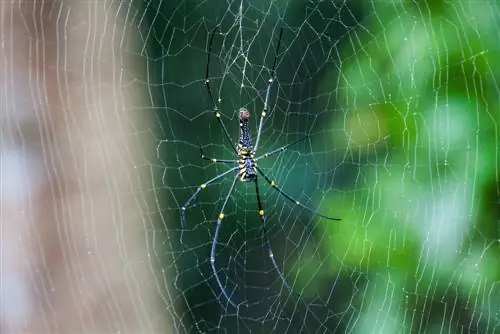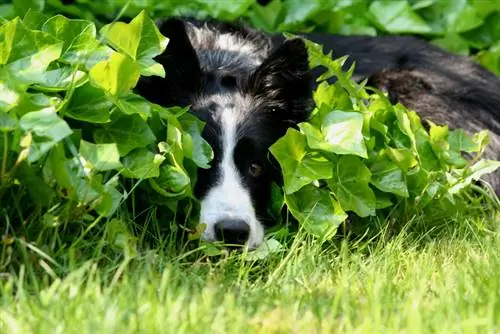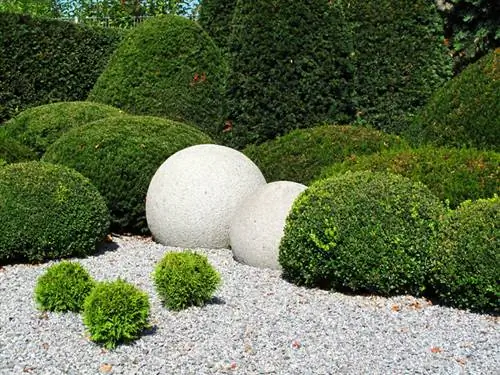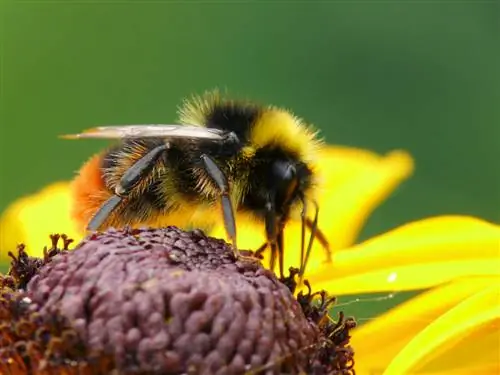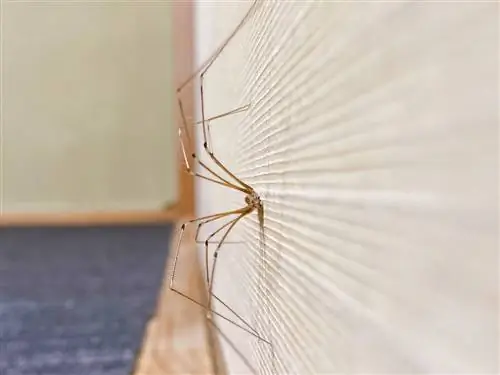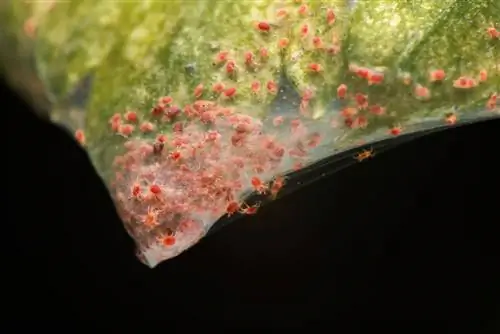- Author admin leonars@hobbygardeners.com.
- Public 2023-12-16 16:46.
- Last modified 2025-06-01 06:02.
The first shock is when spiders appear out of nowhere in the middle of gardening. Many people's irrational fears of these long-legged fellows are too deep. You can find out here whether you actually encounter a hostile pest or a welcome beneficial insect.
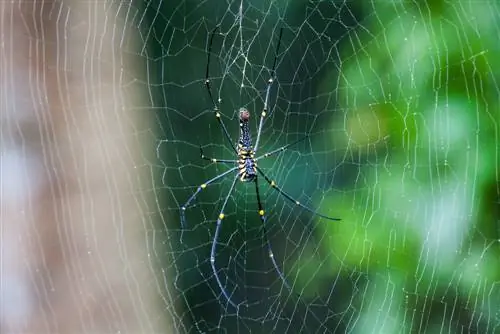
Why are spiders important in the garden?
Spiders in the garden are useful because they act as natural pest controllers and eat large amounts of insects. To keep them in the garden and not let into the house, essential oils, cedar wood, lemon slices, tobacco or black pepper can be used.
Important component in the ecosystem - plea for the spider
If the ecosystem had to do without the help of spiders overnight, it would get into a dangerous state of imbalance. In fact, no other animal species consumes such large quantities of insects as spiders. In addition, the arthropods are active as scavengers because they do not disdain even killed animals.
Scientists have calculated that the spider population in Germany destroys a whopping 5 million tons of insects every year. Part of this is caused by the pests in your garden, such as aphids, mealybugs and mealybugs. Therefore, welcome spiders to the garden as a helpful support in plant protection at no cost.
Entry prohibited - this is how spiders stay in the garden
Although spiders also prove to be diligent pest controllers in the house, they are not welcome. To limit their presence to the garden, there are various options available to prevent spiders from entering the house. The following deterrents target spiders' fine sense of smell:
- Dissolve essential oils in warm water, such as tea tree, peppermint or lavandin oil
- Add a drop of dish soap as an emulsifier and fill it into a hand sprayer
- Spray all entry points for spiders regularly
Spread small pieces of cedar wood, lemon slices, old tobacco or black pepper on window sills and in the corners of rooms. Add lemon juice to the water every time you clean to spread the repellent scent throughout the house.
If a long-legged little helper gets lost in your living space, simply relocate the vagabond to the garden. To do this, place a glass over the spider and slide a piece of paper underneath. Without touching it, carry the spider outside and give it freedom.
Tip
The contribution of spiders to the preservation of the ecosystem is not limited to their hunt for insects. The spider itself is an important part of the food chain, as arthropods are at the top of the menu for birds and other beneficial insects.

